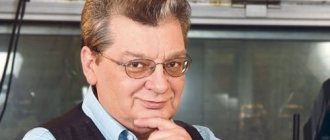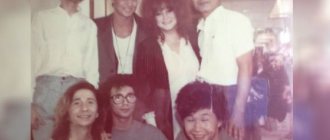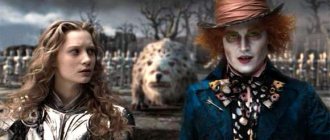Childhood and youth
Albert Einstein was born on March 14, 1879, in the city of Ulm, in southern Germany.
His parents, Herman and Paulina Einstein, had their own business, which brought in a stable but small income. When little Albert was only a year old, the family moved to Munich, the reason for the move was the founding of a small company selling electrical equipment, which his father, Hermann Einstein, founded together with his brother Jacob. Here, in Munich, the great scientist’s younger sister, Maria, was born. Attending a Catholic school, Albert from an early age was interested in a variety of areas in science, and the boy also studied religion. However, already at the age of 12, having read many educational books (which were far from children’s), the future scientist came to the conclusion that the Bible is not a source, much less a guarantor of absolute righteousness. Moreover, Albert, who decided for himself that the Bible was only a way for the state to influence young minds, once and for all revised his views on this issue.
At about the same age, Einstein first read Immanuel Kant's Critique of Pure Reason, and also thoroughly studied Euclidean geometry, having at his disposal only books and a huge thirst for knowledge.
Amazing Einstein: biography of a peculiar man
As a child, no one would have thought that young Albert, who began talking at the age of seven, had a great scientific future ahead of him. He was considered a lazy bumpkin, always distracted by something outside the window. He became interested in physics and mathematics only after he came across a volume of the famous philosopher Immanuel Kant, who stood on the verge of the Enlightenment and romanticism. His writings shocked the young man so much that he decided to understand the philosopher’s ideas using the universal language of mathematics.
Important
In early childhood, Albert Einstein was trained in a strict Catholic school in his native Munich. According to his personal memoirs, he experienced deep religious awe during this period and positioned himself as a man of faith. All this lost all meaning for him at the age of twelve, when popular science literature forced him to look critically at the plausibility of the facts described in the Bible.
Characteristics of a historical person
He was a cheerful person, confident that any problem would “solve” on its own if you ridiculed it long enough. Close friends and acquaintances described him as a friendly, sociable and always cheerful guy. He was quite tall (1.75 m), broad-shouldered and stooped, with a shock of completely unruly hair and huge dark brown eyes. Einstein spent years of his life thinking, but he also found time for other aspects of existence. He literally adored music, especially Mozart and Bach, knew how to play the violin and often practiced it. Albert smoked a pipe and was even in the company of its admirers. They say he had many mistresses, as well as several illegitimate children.
The Nobel Committee found more than five dozen nominations for Einstein for his newest revolutionary theory. His name consistently appeared on lists of candidates for the award for twelve years. However, it was possible to get what was due only in 1922, and only on the topic of the theory of the photoelectric effect. During his life, he managed to collect many titles and awards from prestigious universities in different cities. But from an outstanding scientist, he also turned into a hero of various novels, films and theatrical productions. In adulthood, the appearance of the professor with disheveled shaggy hair and a half-mad look became the basis for the inspiration of many figures in popular culture.
Albert's birth and childhood
Hermann Einstein, the father of the future luminary of science, was a poor Jew in the town of Ulm. He prepared feathers and down for the production of pillows and mattresses. He married Paulina Koch, whose father was a corn farmer. On March 14, 1879, the wife gave birth to a tiny boy with a large head, who was named Albert. Paulina's parents were wealthy enough to help Herman move from the provincial province to Munich within a year. There I managed to open a very small company and start selling electrical equipment. A year later, the sister of the future genius, Maria, was born.
The boy grew up calm, almost never cried, but his mother was worried about his overly large head, and she even suggested hydrocephalus. On top of everything, the child stubbornly refused to speak. At the age of six, his mother arranged for him to take violin lessons. This liberated the boy, he literally blossomed and carried his love for music throughout his life.
While studying at the parochial school, where he was sent at age seven, Einstein's name made teachers frown with disgust. They considered him lazy and often punished him, causing him to withdraw and withdraw into himself. The religiosity instilled at this time crumbled to dust when Albert fell into the hands of Euclid’s Elements and the works of Kant.
At the age of twelve he entered the gymnasium, which now bears his name, but did not achieve great success. The boy's diary had excellent marks only in Latin, which he knew perfectly well from school. Mathematics was also easy for Albert; he understood it and felt it intuitively. Subsequently, he will say that the education system, based on the authoritarianism of teachers and mechanical learning of material, has exhausted itself and only harms the very spirit of learning, killing creative thinking at the root. In 1994, the family moved to Italy, but the young man remained in Munich with relatives to finish his studies. However, it was not possible to obtain a certificate of education then.
Graduation from university and beginning of scientific activity
Just as in school, the smart, well-read and gifted Einstein found the teaching methods of professors in higher education completely incomprehensible and unacceptable. However, the young man decided not to repeat his school mistakes and still received a diploma in 1900. Having passed the exams well, Einstein, however, did not find support among the luminaries of science - no one wanted to help pave the way to the future for the young and daring scientist. This period in Einstein’s life becomes a real test - he cannot find a job, there is a catastrophic lack of money, and no one is interested in his works. It got to the point where he simply didn’t have anything to eat. Subsequently, this affected his health - Einstein developed chronic liver disease, which tormented him for the rest of his life.
But the scientist did not despair, continuing to persistently study physics. Luck came to him in the person of a former classmate, who helped him find a job. However, he had to work outside of his specialty - Einstein had to take the position of evaluation expert at the Federal Bureau of Patenting of Inventions. He devoted himself to this place for seven whole years - from 1902 to 1907, without forgetting for a second about physics. Fortunately, his work schedule allowed him to devote sufficient time to scientific research.
In 1905, the general public learned about Einstein. The specialized German journal “Annals of Physics” published three works of the scientist at once:
- "On one heuristic point of view concerning the origin and transformation of light." One of the fundamental works on which the science of “quantum theory” was subsequently built;
- "On the motion of particles suspended in a fluid at rest, required by the molecular kinetic theory of heat." The work is devoted to Brownian motion and is a significant contribution to the advancement of statistical physics;
- "On the electrodynamics of moving bodies." Today it is generally accepted that it was this article that formed the basis of the doctrine called the “theory of relativity.”
The flourishing career of a brilliant physicist and scientific discoveries that turned the world upside down
Even if not at one moment, the physicist Einstein became famous precisely after the publication of his works in 1905. In April, he submitted his own dissertation to the University of Zurich, which he successfully defended in January. So a simple Jew from a German province became a real doctor of science in physics. The famous scientists with whom Albert actively corresponded called him a professor, but he officially received the title only after four years at the same educational institution.
Unfortunately, the remuneration for the professorship was meager, even compared to the Patent Office. Therefore, when he was offered a chair at the German University in Prague, he agreed without hesitation. Here he could freely engage in science and came close to eliminating Newtonian long-range action from the theory of gravity, something his colleagues had been struggling with for a long time. In the eleventh year he attended the congress, where he met Poincaré for the only time. Three years later he became a real professor at the University of Berlin, and in the fourteenth he was invited to St. Petersburg. Fearing Jewish pogroms, the scientist refused to go to Russia.
Since his 10th work, Einstein has been nominated for a Nobel Prize every year. The theory of relativity (TR) turned out to be so complex and revolutionary that the committee members could not bring themselves to admit its validity. Albert still received the award, but only in 1922 and not for what he expected. It was awarded for the photoelectric effect, an experimental and well-tested work. The scientist did not argue, took the money (32 thousand dollars) and immediately gave it to his ex-wife.
Scientific discoveries that changed the world
It was not for nothing that the scientist Einstein was considered in the world of science to be a real ascetic, a revolutionary, who turned the worldview of humanity as a whole upside down. He strove for maximum “logical simplicity” and managed to see something new in the familiar.
- The general theory of relativity is the main brainchild of physics. It is based on the denial of the ether and is based on experiments carried out. This work has long become a working tool for astronomers and physicists. It is the basis for time corrections in the GLONASS and GPS systems, and is used to calculate the acceleration parameters of elementary particles. TO also turned out to be indispensable for obtaining nuclear energy and space flights. Within the framework of this theory, the law of interaction between energy and mass (E = mc2) was discovered.
- Einstein made a huge contribution to the development of quantum mechanics. Even Schrödinger wrote that Albert's thoughts had a strong influence on him. People have not yet learned how to fully apply this discovery, but the development of a new quantum computer is in full swing, the data processing speed of which will be beyond all our imaginations.
- Albert Einstein discovered that there are four types of particle interactions. By combining them, he created a unified field theory. He admitted that in addition to four dimensions (length, width, height, time), there is also a fifth, but due to its small size it is invisible. It was from these considerations that the notorious TO subsequently grew.
In nineteen hundred and five, the scientist discovered that the photoelectric effect, for which he was awarded the Nobel Prize, is possible when a substance (medium) consists of individual particles (photons). When they strike electrons, they tear them out of the atoms. Thanks to the knowledge of this principle, it was possible to build an atomic bomb, but most importantly, numerous power plants of this type.
Physicist moving to the USA
Beginning in the thirties of the twentieth century, an economic crisis began to brew in Weimar Germany, and with it, more and more frequent reports of unrest and anti-Semitism appeared, like mushrooms after rain. Radical nationalist sentiments in society led to serious threats and direct insults to Einstein as a Jew. The Nazis, who came to power, quickly took credit for all the physicist’s discoveries, and even offered a fifty thousand reward for his life and head. Racial cleansing could affect anyone, so in 1933 the scientist finally left Germany with its progressive Nazism and moved to the United States.
In the town of Princeton, he took a position as a professor in the physics department at the Institute for Advanced Study. A year later, he was summoned and honored with a personal meeting with President Franklin Roosevelt. During World War II, it was Einstein who was entrusted with the responsible task of advising the US Navy. The renowned scientist also signed the petition written by Leo Siladra. It talked about the danger of the Nazis creating an atomic bomb. Roosevelt took the paper seriously and created his own agency to develop such weapons.
A non-standard view of the structure of theories
Einstein's research work was not accepted by his colleagues for a long time. The fact is that they simply did not understand them. Having a rather specific view on the creation of theories, he was confident that experience is the only source of knowledge, while theory is an intuitive creation of the human mind, and therefore there are not so many reasons for connecting experiment with a theoretical basis. However, there were those who supported the scientist in his activities. Among them was Max Planck, with whose help Einstein later managed to become director of the Kaiser Wilhelm Institute of Physics in Berlin.
Personal life of a genius: what Einstein did
The great physicist was not handsome, but he had a special approach to women. Contemporaries considered Albert a real “womanizer, trailing every skirt.” Fleeting romances did not always end calmly, without tears, hysterics and other accompanying “charms” that Einstein himself could not stand.
Wives and children
The physicist's first passion was Maria Winteler, whom he met at the Zurich Polytechnic. It didn’t get any further than violent passions, although the parents were already preparing a dowry. In 1998, while working on the theory of gravity, he met a Serbian woman, Mileva Maric, and fell in love again. What he found in this rude woman, limping on one leg and completely devoid of charm, no one understood. Albert's mother, Paulina, opposed this marriage and for several years the couple lived just like that. Their first-born daughter, Liesel or Lieserl, was also born out of wedlock, but the young father was in no hurry to acknowledge paternity. No one knows what happened to the baby afterwards, her trace is lost, and her fate is unknown.
After that, he agreed to marry Mileva, but set a number of conditions that clearly infringed on the woman’s rights (not entering the room when he was working and leaving it on demand, taking care of her husband, not discussing the decisions he made, and so on). But if you want to get married, then you won’t dance like that, and she agreed. They got married, and a year later (May 14, 1904) their son Hans Albert was born, who later became an engineer in hydraulic systems. The second son, Edward, was born (1910) mentally disabled, and in the thirties he was finally given a terrible diagnosis - schizophrenia. He died in a mental hospital in '65, having never left there after twenty years.
After marriage, it was very difficult to persuade Mileva to get a divorce, but Albert succeeded. He promised to give her all the money after receiving the Nobel Prize, the award of which there was no doubt, and it worked. He kept his word and transferred the funds to his ex-wife. His second wife was his second cousin Elsa Lowenthal, who turned a blind eye to all his adventures and oddities. She was previously married and had two lovely daughters, whom Albert not only adopted, but also considered the closest people in the world.
A series of mistresses followed, starting with secretary Betty Neiman. The man offered her to live together, but the young girl, twenty years younger than the professor, could not agree to this. Pretty Toni Mendel was next in line and lived next door. Ethel Mikhanovskaya, a friend of her adopted daughter, turned out to be too young, naive and romantic. She had to be abandoned because of Elsa's howling and tears. Margaret Lebach almost took him away from the family, but his wife survived. He did not want to exchange her for anyone: she was his wife, mother and even more. They say that in his declining years Einstein had an affair with Margarita Konenkova, the wife of a famous Soviet sculptor.
The scientist's political beliefs and Einstein's philosophy
Albert learned early on the injustice of the social system. That’s why he forever remained a convinced pacifist, socialist, humanist and anti-fascist. He fiercely condemned the alienation of man, the opposition of himself to others under capitalism.
He considered it a high goal to build a socialist system, but without signs of totalitarianism in the management of society. For him, coercion, violence, and even more so the murder of a person was extremely unacceptable due to his pacifist thinking. In 1927, he even actively participated in the Brussels Congress of the Anti-Imperialist League. During the outbreak of anti-Semitic pogroms in Germany, he actively supported Zionist groups.
The scientist Einstein was always keenly interested in the philosophical aspect of science. The main authority, in his own words, was Spinoza, whose ideas were so close to the physicist. He did not accept the explicitly positivist positions of Poincaré and Mach. Regarding religion, Albert’s position was also not unambiguous; at different periods of his life he expressed himself differently. As a result, the closest thing to him was agnosticism. That is, he did not deny the possibility of the existence of deities, but he also did not take for granted what was not (could not be) proven experimentally.
Public recognition of scientific discoveries: in memory of the genius Einstein
Einstein received public recognition during his lifetime, which was reflected in many titles and awards. Doctoral degrees from various universities, not to mention the notorious “Nobel Prize”, which he still received, despite the skepticism of his colleagues - all this can be safely credited to his incredible intellect.
- In the 21st year of the twentieth century, he became an honorary citizen of New York, and two years later of Tel Aviv.
- In the thirty-first he was awarded the Jules Jansen Prize from the French Society of Astronomers.
- In 1923, in Germany, Einstein was awarded the Order of Merit, which he himself refused ten years later due to the rampant Nazism in the country.
- For his, incomprehensible to many, theory of relativity and his most powerful contribution to quantum theory, he was awarded the Copley Medal from the Royal Society of London.
This is only a small fraction of the titles, titles and awards that this amazing scientist deserved and received. Many monuments have been erected in his honor, and avenues, squares and streets in different cities of the world are named after him. There is an asteroid named after him, and in Philadelphia even a medical center is called Einstein. His image was portrayed in a number of computer games (Civilization IV, Command & Conquer: Red Alert), as well as feature and documentary films (Einstein's Great Idea, IQ, Genius). Thanks to his unusual appearance and habits, he became the hero of many novels, stories and short stories.
Death of a Scientist: Myths and Legends Around the Person of a Research Theorist
In the fifty-fifth year, the health of the great physicist noticeably deteriorated. Then he wrote a will and even told his friends that he had already completed his mission on Earth. On April 18, 1955, world-famous scientist Albert Einstein died of an aortic aneurysm at Princeton Hospital. The nurse testified that he tried to speak German, but did not have time to identify what exactly he said. They didn’t bury him - he forbade it. The body was burned in the crematorium and the ashes were scattered to the wind.
The physicist’s versatile personality, which did not fit into a standard framework, gave rise to the emergence of many myths and legends after his death, which he so much did not want during his lifetime. Firstly, they said that the first wife “had a hand” in the maintenance, but there was no evidence of this. Secondly, many doubt that the ideas of this theory came to his mind, and were not actually “suggested” by Poincaré or Hilbert. In addition, today he is positioned as a vegetarian. However, the truth is that he began to hold such views only in the last year before his death.
Interesting facts about the unusual life of the smartest man
As a child, Albert was considered inferior due to the fact that he was not distinguished by the usual childish talkativeness. In addition, he had a large head, which even his mother was worried about.
Einstein never liked sports and perceived any physical activity as violence against a person. He liked to repeat that when returning from work, he “wants to do nothing.”
The scientist did not like science fiction. He believed that all sorts of assumptions could significantly distort the results of real research and influence them.
Einstein allowed his own brain to be studied after his death.
Like the famous literary character Sherlock Holmes, Albert loved to smoke a pipe and play the violin in the kitchen.
It is believed that it was this physicist, together with his friend Leo Szilard, who invented a refrigerator that could work without consuming electricity.
The US Federal Bureau of Investigation considered him a Soviet spy. From thirty-three until his death, he was under surveillance.
General relativity, eclipse and global recognition
Work on the theory of gravity was long and painstaking and lasted from 1907 to 1915. Einstein worked on a new discovery, using the principles of the theory of relativity as a basis. The essence of the work was that the connection between the geometry of space-time and the gravitational field is inextricable. According to Einstein, space-time in the presence of gravitating masses becomes non-Euclidean. The final result of the work - an equation that clearly demonstrates the essence of his theory - was presented in 1915 at a meeting of the Academy of Sciences (Berlin). Later, the theory would be recognized as the pinnacle of Albert Einstein's creativity.
However, there is still a lot of time before this event, and at the time of public relativity of general relativity, few people are interested in it. A turning point in the life of the scientist was 1919, when, through observation, it was possible to test one of the aspects of the theory, which stated that a ray of light from a distant star is bent by the gravitational field of the Sun. In order to experimentally test the theory, a total solar eclipse was needed, and that is what was observed in the 19th year of the twentieth century, in three parts of the globe. Enlisting the support of astrophysicist Arthur Eddington, the expedition led by Einstein obtained information that confirmed the general theory of relativity. This is how Albert Einstein was first recognized by scientific society throughout the world.
Albert did not want to stop there, working hard on new research and it was bearing fruit. Already in 1921, Einstein received the Nobel Prize for quantum theory, became an honorary member of many scientific academies, and his opinion instantly turned from “non-standard” to “authoritative”. Participating in various world conferences, he debated with the leading scientists of that time, and their passionate debates were a significant contribution to the advancement of science more than one step forward. One of the most famous dialogues took place with Bohr, with whom they discussed the problems of quantum mechanics.
Einstein and Zionism
Simultaneously with his pacifist activities, Einstein spoke out against anti-Semitism and for the creation of a “Jewish home.” Einstein angrily criticized anti-Semites, helped Jews - scientists and students - find employment in the United States, and devoted a lot of time to raising money for refugees.
While still in Prague, Einstein became acquainted with the ideas of Zionism. In 1921, Einstein, together with H. Weizmann, traveled around the United States to raise funds for the purchase of land in Eretz Israel and for the construction of the Hebrew University in Jerusalem. In 1922-23 Einstein lectured at the University of Jerusalem, Tel Aviv and other cities. In 1946, at the Anglo-American Committee for the Study of the Situation in Palestine, Einstein substantiated the urgent need for the creation of a Jewish state.
Einstein welcomed the formation of the State of Israel and was aware of its politics and economics. Being a man of leftist views, he supported the Israeli socialists and their war with the national liberal camp, and participated in propaganda against Beitar politicians.[1]
Prime Minister D. Ben-Gurion, after the death of the first president H. Weizmann, invited Einstein to run for the presidency of Israel, but Einstein did not consider himself a suitable candidate. Einstein defended the interests of Israel throughout his life. Even while in hospital in the last days of his life, Einstein was preparing the text for his television speech to commemorate the 7th anniversary of Israel's independence.
Einstein died at his home in Princeton on April 18, 1955.
Life after general relativity
After the creation of General Relativity, Einstein, inspired by success and believing in his own strength, wants to confirm this with the next, even more ambitious project - his plans are to create a unified theory of all possible interactions. Even after immigrating to the United States due to the Nazis coming to power, Albert continued to work on his idea. At the same time, the genius of physics taught at the Princeton Institute for Basic Research.
However, his grandiose theory was not destined to see the world. Due to the meager amount of information available in the pre-war era, the unrealistic efforts made by Einstein for more than a quarter of a century were in vain.
Death
The eccentric genius with a pipe and tousled hair was incredibly popular. Streets, towers, telescopes, a crater on the Moon, and a quasar were named after him. In 1955, his health condition deteriorated greatly. He went to the clinic and was calm and peaceful while awaiting his death.
Albert Einstein sticks out his tongue
On the eve of his death on April 18 from a ruptured aorta, he destroyed the manuscript of his latest research. What made him do this remains a mystery to this day.
After autopsying the scientist's body, pathologist Thomas Harvey made an interesting observation. In the left hemisphere of Einstein's brain, there was an abnormal number of glial cells that "feed" neurons. And, as you know, the left hemisphere is responsible for logic and “exact sciences”. Also, despite the genius’s advanced age, there were practically no degenerative changes in his brain that are typical of older people.
Monument to Albert Einstein by Robert Burks
Among the famous living descendants of Albert Einstein are his great-grandchildren Thomas, Paul, Edward and Mira Einstein. Thomas is a doctor who runs a clinic in Los Angeles. Paul plays the violin. Edward (whom everyone simply calls Ted) dropped out of high school and built a successful business - he owns a furniture store. Mira works in telemarketing and plays musical instruments in her spare time.
Personal life
The genius's first wife was a girl with Serbian roots named Mileve Maric, who taught physics and mathematics. Their acquaintance occurred while working together on the law of gravity. The woman gave birth to Einstein's three heirs. The couple divorced after Maric learned about her husband’s secret correspondence with her cousin Elsa Leventhal, who later became his second legal wife. In his second marriage, Einstein, who had lost his own children (Maric took them with her to Zurich), raised Elsa’s children from his first marriage; The couple had no children together.
Direct your energy to studying what is truly interesting
It is generally accepted that Einstein was a poor student at school.
He really was when he lived in Germany, but according to the German grading system, one was then the highest score. Albert completed his graduating class in Switzerland, where a standard six-point system was used. Einstein's certificate has survived to this day, and his grades indicate that he studied well. His average score was five.
Albert knew the exact sciences excellently, but languages and drawing were bad for him. It is also known that he did not enter the ETH Zurich the first time. This is true, but only his grades in botany and French let him down. But he passed the mathematics exam so brilliantly that the director of this institute personally gave him recommendations for further admission.
Pacifist Einstein urged Roosevelt to develop an atomic bomb
In 1939, concerned about the rise of Nazi Germany, physicist Leo Szilard persuaded Einstein to write a letter to President Franklin Roosevelt, warning that Nazi Germany was conducting research into developing an atomic bomb and urging the United States to create its own.
The Einstein-Szilard letter is often cited as one of the reasons why Roosevelt started the secret Manhattan Project to develop the atomic bomb.
. Although Einstein was a brilliant physicist, he was considered a security risk and was fortunately not invited to help with the project.
Be modest
Einstein was modest both in everyday life and in society. The great scientist became one of the first harbingers of minimalism in clothing. He did this, of course, not for the sake of fashion, but in the name of convenience. His wardrobe lacked unnecessary accessories such as ties, scarves and even socks. Yes, he didn't wear socks!
Anything unnecessary that interfered with his work was alien to him. The scientist did not need a special office. When asked where his laboratory was located, he showed a fountain pen with a smile.
Strive not to achieve success, but to ensure that your life has meaning.
Albert Einstein
Einstein suffered from speech difficulties when he was a child
As a child, Einstein spoke very rarely. When he spoke, he did so very slowly, trying to form whole sentences in his head and muttering them under his breath until he could say them correctly out loud.
, and so on until about 9 years old. Einstein's parents feared that he was mentally retarded, which of course was completely unfounded.
Otto Neugebauer described one of the situations that happened to Einstein as a child.
(Otto Neugebauer):
“Since he started talking late, his parents were worried. Finally, when dinner was served, he broke the silence and said, “The soup is too hot.” Sighing with relief, his parents asked him why he had been silent before. Albert replied: “Because until now everything was in order.”
Also, besides Einstein, many brilliant people experienced speech delays in childhood. This phenomenon was even given the name “Einstein syndrome.”










